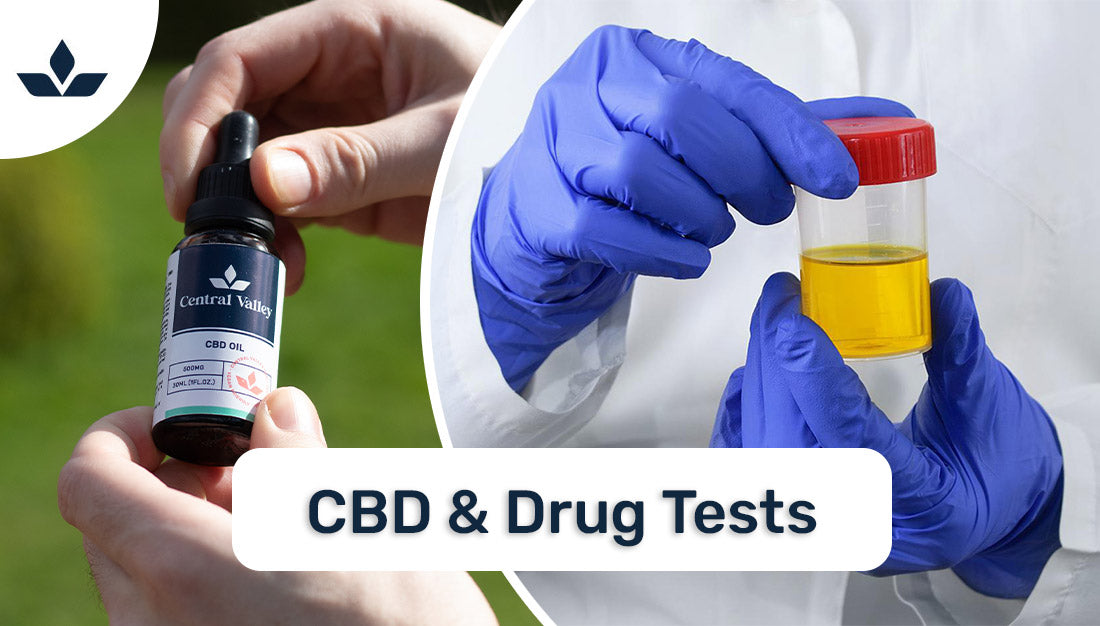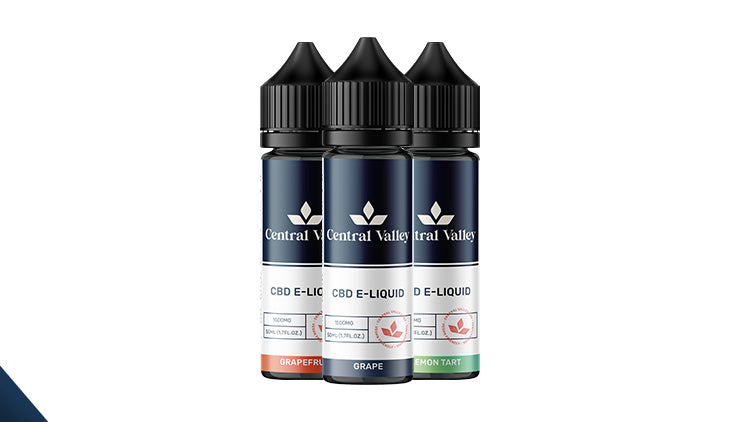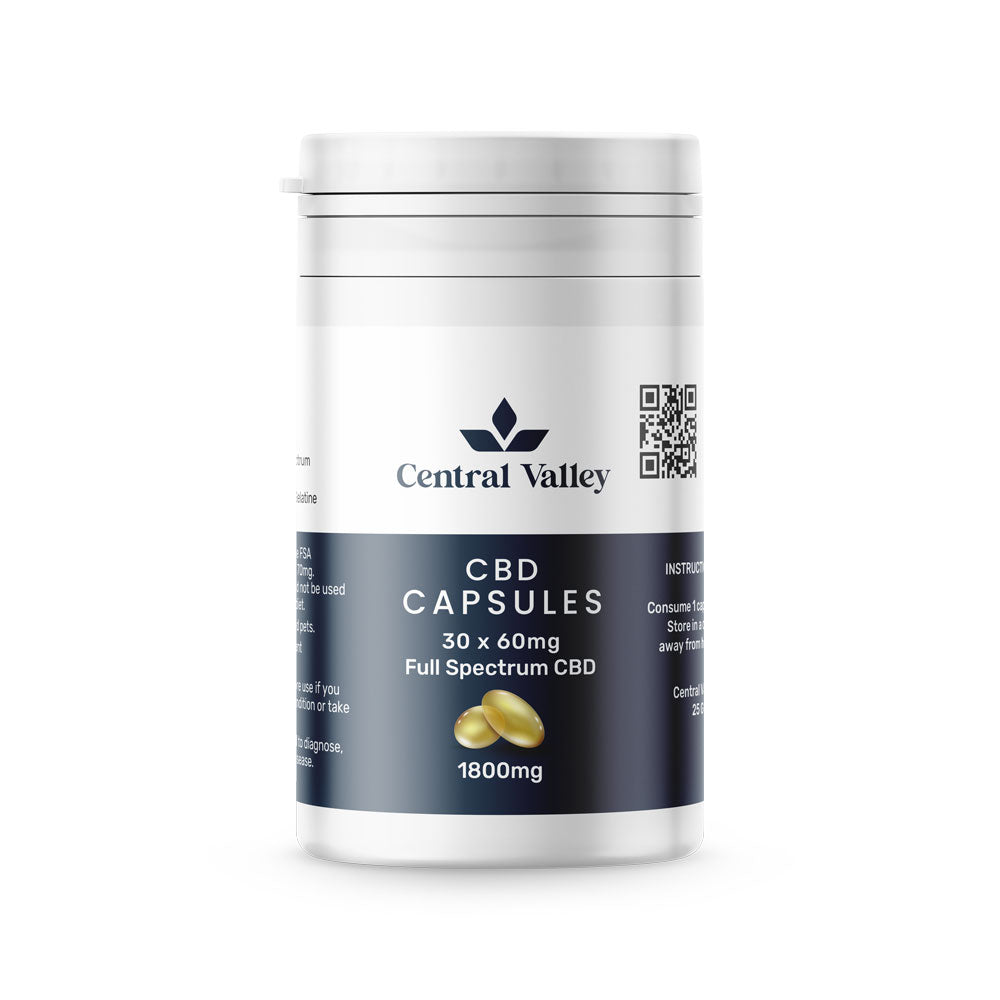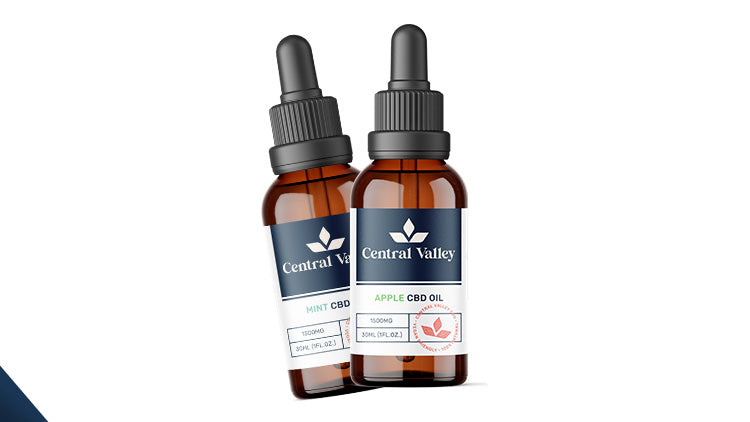
Does CBD Show Up on a Drug Test?
Share
In recent years, the use of Cannabidiol (CBD) products like CBD Oils or CBD Gummies has skyrocketed due to their potential therapeutic benefits. However, this has raised concerns among users about whether the use of CBD could lead to a positive result on a drug test. This is a complex issue, as drug tests typically screen for Tetrahydrocannabinol (THC), the psychoactive compound in cannabis, and not CBD. However since some CBD products contain trace amounts of THC, it's possible that these could accumulate in the body over time and potentially lead to a positive test result.
Shop CBD Oils, Shop CBD Gummies, Shop CBD Capsules, Shop CBD E-Liquids , Shop CBD Disposables, CBD Skincare
In this blog post, we will delve into the science behind drug testing, the differences between CBD and THC, and the factors that can affect a drug test. We will also discuss the types of CBD products available and provide recommendations for those who are subject to THC testing. It's important to note that there is no one-size-fits-all answer to this question, and the information provided should be used as a guide rather than definitive advice.
What is CBD and THC?
Cannabidiol (CBD) and Tetrahydrocannabinol (THC) are both compounds found in the cannabis plant, but they have different effects on the human body.
CBD is non-psychoactive, meaning it doesn't cause a "high". It's known for potential therapeutic benefits and is often extracted from hemp, a variety of cannabis with low THC levels.
THC is the compound responsible for the psychoactive effects or the "high" associated with cannabis use.
While CBD products often contain trace amounts of THC, these are usually too small to have a psychoactive effect but could potentially show up on a drug test due to accumulation in the body over time.
How Do Drug Tests Work?
Drug tests, particularly urine drug tests, are based on immunoassay techniques. These tests use antibodies designed to attach to specific drugs or their metabolites. In the context of cannabis use, these tests typically target THC and its metabolites.
When the antibodies identify a drug, they produce a signal that results in a "positive" test result. However, it's important to note that these tests do not screen for CBD. However, some CBD products contain low quantities of THC that could, in theory, lead to a positive test result.
Positive results from an immunoassay test should be confirmed with a more specific method, such as Gas Chromatography/Mass Spectrometry (GC/MS) or High-Performance Liquid Chromatography (HPLC). These methods help to eliminate the possibility of a false positive result.
Urine testing typically only has a detection window of hours to days, which presents a challenge for the accurate detection of drugs. A positive result indicates that the individual had a detectable amount of a substance present during a certain time window. It does not usually indicate impairment or that the individual has a substance use disorder.
Can CBD Cause You to Fail a Drug Test?
While CBD itself will not show up on a drug test, the answer to whether it can cause you to fail a drug test is not straightforward. This is because some CBD products contain trace amounts of THC, the psychoactive compound that most drug tests are designed to detect.
When you use CBD products consistently, these trace amounts of THC can accumulate in your body over time. This is particularly true if you are taking CBD in high doses or using full-spectrum CBD products, which contain all the cannabinoids found in the cannabis plant, including THC.
Moreover, the way your body processes THC can also affect the outcome of a drug test. Factors such as your metabolism, the amount of fat in your body, and your level of physical activity can all influence how long THC stays in your system.
It's also worth noting that drug tests are not infallible and false positives can occur. For example, certain foods, medications, and even some personal care products can cause a false positive result on a drug test for THC.
So, while the risk is low, the presence of trace amounts of THC in some CBD products means there is a possibility that using CBD could lead to a positive drug test result. If you are subject to drug testing, it is recommended to use CBD products that are designed to be THC-free, such as broad-spectrum oil, broad spectrum gummies or isolate (powder) CBD products.

Types of Drug Tests
There are several types of drug tests that can detect the presence of THC and its metabolites in the body. Here are the most common ones:
Urine Tests
These are the most common types of drug tests. They can detect THC metabolites for several days to a few weeks after use, depending on the frequency and amount of use.
Blood Tests
These tests can detect the presence of THC in the bloodstream. However, THC is usually only detectable in blood for a few hours to a couple of days after use.
Saliva Tests
These tests can detect THC in saliva for a few hours up to a couple of days after use. They are commonly used for roadside testing in countries where cannabis use is legal.
Hair Tests
These tests can detect THC metabolites in the hair follicles. THC metabolites can show up in hair for up to 90 days after use. However, this type of test is less common due to its cost and the time it takes to get results.
It's important to note that the detection window can vary greatly depending on several factors, including the type of test, the individual's metabolism, the frequency and amount of drug use, and the sensitivity of the test.
Factors That Can Affect a Drug Test
Several factors can influence the outcome of a drug test. Here are some key ones:
Frequency and Amount of Use
The more often and the more quantity of a substance you use, the longer it will be detectable in your system.
Metabolism
Individuals with faster metabolisms may eliminate substances from their system at a quicker rate than those with slower metabolisms.
Body Fat
THC is fat-soluble, meaning it gets stored in fat cells in the body. Therefore, individuals with higher body fat percentages may retain THC for longer.
Physical Activity
Exercise can potentially affect a drug test result. This is because it can release stored THC from fat cells into the bloodstream.
Hydration Levels
Hydration can affect the concentration of substances in urine. Overhydration may dilute a urine sample and potentially lead to a false negative, while dehydration may increase the concentration of substances and potentially lead to a false positive.
Type of CBD Product Used
As mentioned earlier, some CBD products contain trace amounts of THC. Regular use of these products could potentially lead to a positive test result.
Remember, these factors can vary greatly among individuals, making it difficult to predict the outcome of a drug test with certainty.
The Importance of Confirmatory Tests
While immunoassay tests are a valuable tool for initial drug screening, they are not infallible and can sometimes produce false positive results. This is where confirmatory tests come in.
Confirmatory tests, such as Gas Chromatography/Mass Spectrometry (GC/MS) or High-Performance Liquid Chromatography (HPLC), are used to confirm the presence of a specific drug or its metabolites. These tests are more accurate and reliable than immunoassay tests, as they can differentiate between substances with similar structures, reducing the chance of a false positive result.
It's important to note that a positive result on an immunoassay test does not necessarily mean that the individual has used or is impaired by a drug. It simply indicates that a certain amount of the drug or its metabolites was present in the person's system at the time of testing. Therefore, positive results should always be confirmed with a more specific method to avoid potential legal and social ramifications.
In the context of CBD use, if a drug test comes back positive for THC, a confirmatory test can help determine whether the result is due to the use of CBD products containing trace amounts of THC or actual use of THC-containing substances.
Recommendations for Those Getting Tested for THC
If you are subject to drug testing for THC, it's important to be aware of the potential implications of using CBD products. Here are some recommendations:
Opt for THC-Free Products
If you choose to use CBD products, opt for those that are guaranteed to be THC-free. Broad-spectrum and isolated CBD products are typically free of THC.
Understand the Product
Before using a CBD product, make sure you understand what it contains. Check the product label and third-party lab reports if available.
Consult with a Healthcare Provider
If you are unsure about the potential implications of using CBD products, consult with a healthcare provider. They can provide guidance based on your specific circumstances.
Be Honest
If you are taking a drug test, be honest about any substances you have used, including CBD products. This can help avoid potential misunderstandings or false positive results.
Remember, while CBD itself will not show up on a drug test, the trace amounts of THC found in some CBD products could potentially lead to a positive test result. Therefore, if you are subject to THC testing, it is recommended to stay away from CBD products that contain even trace amounts of THC.
So, let’s conclude..
Does CBD Show Up on a Drug Test?
While CBD itself does not show up on most drug tests, the trace amounts of THC found in some CBD products could potentially lead to a positive test result. This is particularly true for individuals who use these products consistently and in high doses. However, many factors can influence the outcome of a drug test, including the type of test, the individual's metabolism, and the amount of THC in the CBD product.
Therefore, there is no one-size-fits-all answer to the question, "Does CBD show up on a drug test?" If you are subject to drug testing for THC, it is recommended to stay away from CBD products that contain even trace amounts of THC and opt for THC-free products such as broad-spectrum or isolate CBD products.
It's also important to understand the limitations of drug tests and the importance of confirmatory tests in ensuring accurate results. While the use of CBD products is generally safe and legal, it's important to be aware of the potential implications for drug testing. As always, if you have any concerns, it's best to consult with a healthcare provider.
FAQ
Can CBD products cause a false positive on a drug test?
While CBD itself will not show up on a drug test, some CBD products contain trace amounts of THC, which could potentially lead to a positive test result.
How long does THC stay in your system?
The length of time THC stays in your system can vary based on several factors, including the frequency and amount of use, your metabolism, and the amount of body fat you have.
What are THC-free CBD products?
THC-free CBD products, such as broad-spectrum or isolate CBD products, are made from hemp extract that has had all THC removed. These products are recommended for individuals who are subject to drug testing for THC.
What is the difference between a urine test and a blood test for THC?
Urine tests and blood tests for THC differ mainly in their detection windows. Urine tests can detect THC metabolites for several days to a few weeks after use, while blood tests can usually only detect THC for a few hours to a couple of days after use.
What can cause a false positive on a drug test for THC?
Certain foods, medications, and even some personal care products can cause a false positive result on a drug test for THC. Additionally, using CBD products that contain trace amounts of THC could potentially lead to a positive test result.
How can CBD cause a failed drug test?
CBD itself doesn’t cause a failed drug test. However, regular and consistent use of CBD products, which may contain trace amounts of THC, can lead to the accumulation of THC in the body, potentially resulting in a positive drug test.
How long do CBD and THC stay in the body?
The effects of CBD can last several days after use. A single dose of CBD can result in detectable levels in urine for four to five days. THC, stored in fat cells, can remain detectable for a period ranging from two days to several months, depending on factors like frequency of use, body fat percentage, metabolism, and exercise habits.
What other substances can cause a false positive for THC?
Certain drugs, including NSAIDs like ibuprofen, naproxen, and sulindac dronabinol, as well as pantoprazole and efavirenz, can cause false-positive results for THC. Vitamin B supplements and foods like snack bars containing hemp seeds, which have minute traces of THC, can also potentially cause a false positive drug test.







